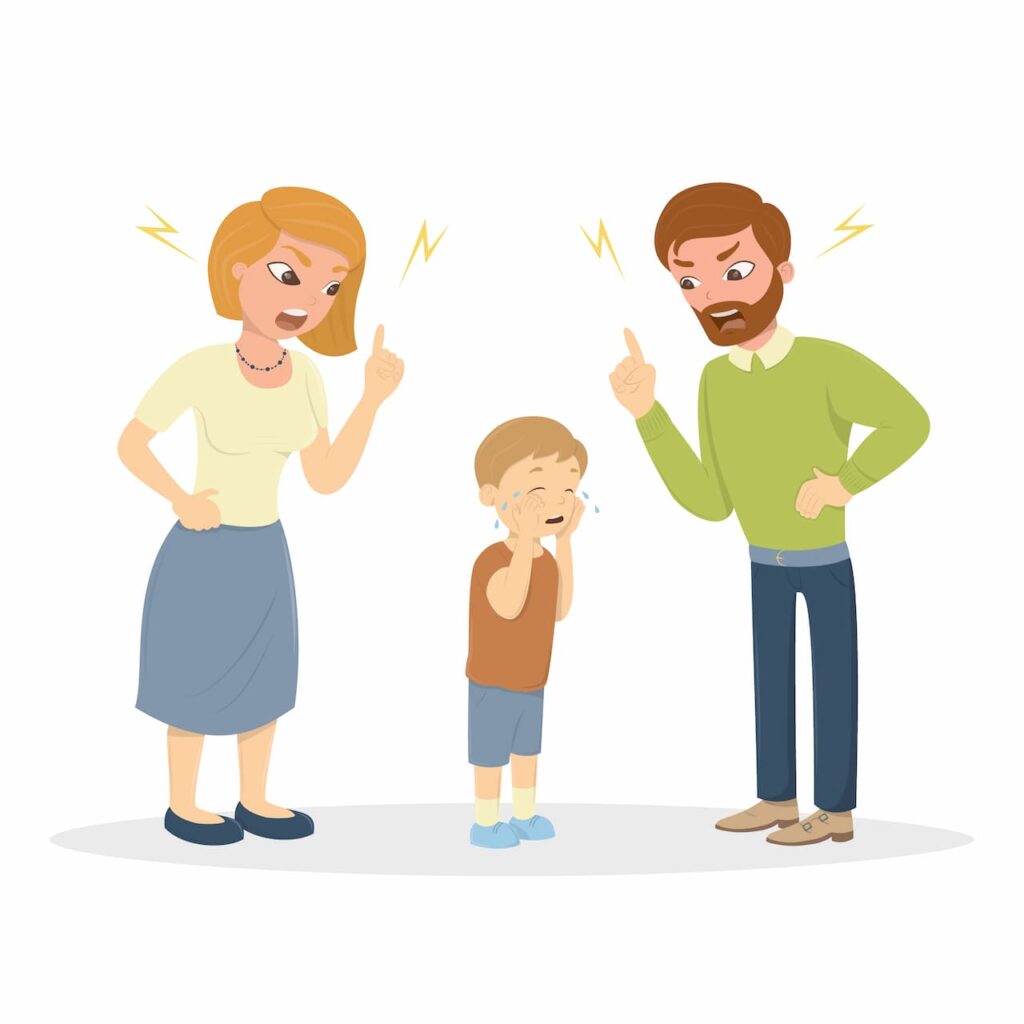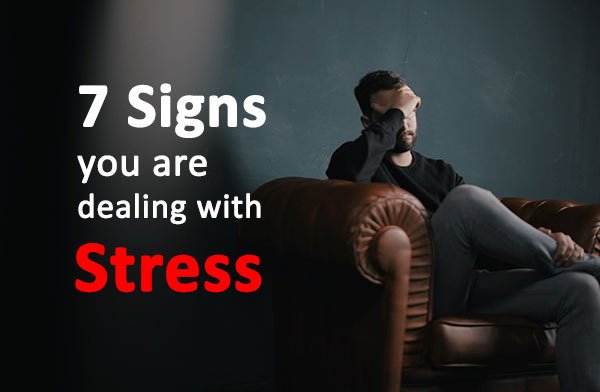Talk to a Psychologist for Online Counselling
Book Appointment Now 100% Private & Secure
Convenient, 100% anonymous, safe, certified professional counseling online.You might have noticed that a conversation can quickly turn into an argument, and people shout at each other. Yelling isn’t just a problem with behavior, it can also be an issue of emotion. This might be something we have all experienced in our own lives. We might have ended up yelling at one another, causing offence. Ever wonder why people shout at each other? This is due to an inability to control emotions. It’s possible to say that emotions can hack your cognition in a matter of seconds. Yelling can cause irreparable damage to relationships and even lead to death.


Yelling can be like demonstrating authority and imposing oneself on another person. Do you shout when you are angry? If so, it could be a sign that you have poor relationships with others. You can change your communication style when you are angry by learning how to properly diffuse your emotions. Next, you can go back to the drawing board again and express your needs calmly. After you have dealt with your anger temporarily, consider long-term strategies to manage your anger.
Generally, people become bossy and yell at their children. Friends, and spouses, and in other relationships, as if taken them for granted that they won’t retaliate to their behavior. But this kind of yelling behavior has negative impacts on the people causing long term negative effects.
Yelling at kids
Parents lose their cool, and begin yelling at children in an effort to discipline them. This type of parenting behavior can have negative consequences for children. This can affect their self-confidence and morale. This creates a fearful environment for children. This is detrimental to their overall health.


Yelling at friends
Sometimes it is okay to fight with friends, provided that the boundaries are not crossed. A fight can turn into a bitter argument, leading to yelling at one another. This can lead to bitterness and a breakdown in friendships.


Yelling at partner
An argument can often turn into a nasty spit fight. Anger, frustration, or the inability to control emotions can lead to shouting at your partner. This can be a cause for major breakups and offenses to the partner.


We now know that yelling is a behavior issue and should be addressed with steps or strategies.
How to stop yelling
Method 1
1. Taking a break
If you hear yourself shouting, pause mid-sentence. Stop yelling the moment you hear your voice rising. Don’t even finish your sentence. Consider what you are trying to communicate. Learn to control your anger before you start screaming. This will prevent you from making mistakes or causing damage to your relationships.
2. Practice deep breathing
To calm your anger, take a deep breath and breathe in deeply. Deep breathing encourages relaxation, so you will feel calmer and more in charge after just a few minutes. For a few seconds, draw a deep breath through your nose. Hold it for a few minutes, and then let it go. Continue this until tension is gone.


3. Count down technique
To calm down, count to 10. Counting helps you focus your attention on something other than what is making you mad. You can start at 1 and increase your number until you have 100.
4. Get some fresh air
Get some fresh air. Take a break from the city and go for a walk. You can find relief in the natural world and clear your mind to help you deal with anger better.
5. Calming Yourself
Tell your partner that you are going to be leaving for a while. Go for a walk. To burn off the steam, go at a rapid pace. Keep your legs and heart moving, and take deep breaths. This movement will calm down your body and eventually your mind.
6. Stretching exercises
Stretching exercises can help relieve tension. Relax your muscles with your timeout. Deep breaths are a good way to stretch each muscle group. You might be familiar with yoga and try some asanas to ease tension. Just calm down, and simply start stretching your body muscles. Gently twist your body from side to side. Your elbows should be bent. To loosen your entire body, twist your torso away from your hips and swing slowly to the opposite side.


Reach your toes by bending forward. Reach your fingers towards your toes by bending forward from your hips. Relax your neck and head forward. It’s okay if your feet aren’t touching the ground. Just reach as far as possible. This surrendering pose will help you let go anger.
Your hips should be open. Your feet should be wider than shoulder width apart. Bend your knees at the knees. Straighten one arm and place your hands just below your knees. To feel a stretch in your hips and groin, lean your body in the opposite direction. For 10 seconds, switch sides. Stretching your hips can help release tension.
Method 2
1. You must think before you can speak
You may be an emotional communicator if you shout when you’re mad. This could mean that you are more inclined to act or speak based on your emotions and instincts than your ability to reason things out. It can be helpful to take a moment to think about what you are saying and to evaluate your reactions.
2. Apologize for shouting
Offer your good will and apologize to the other person. Let the other person know that you are sorry for your behavior and are open to discussing the matter with you.
Begin with a calm word. You can begin your apology with a calm word such as “OK” or “Alright.” This signalizes to the other person that your tone has changed and can help you calm down.


Be sincere and honest. Tell the other person you are sorry for your yelling and that anger is a problem. Ask the other person if they would like to continue the conversation and help you express yourself better.
3. Control your volume
Use a quiet voice, or whisper to ensure your volume and tone don’t get too loud. Talk as if you’re in a library. Talk to your children in a whispered or hushed voice if you’re mad. Whispering serves two purposes: It helps you maintain a high-volume voice and ensures that other people are fully tuned in to hear what you’re saying.
4. Reduce abusive language.
You might be even more angry if you use certain words while communicating. You should stop using absolute terms such as “always,” “never,” “should,” or “must.” These words can cause conflict as they are accusatory and judgmental and leave little room for negotiation.


5. Make the right choices of words
Use “I” statements. Use “I” statements to communicate your points more effectively. This might sound something like: “I” feel unimportant when your arrive late for our meetings. Use “I”, statements allow you to take control of your feelings instead of passing it on to others. Avoid using “you” statements to place blame on others, such as “You don’t care about me.” You are always late!
Method 3
1. Managing Your Anger Better
You should make a rule not to yell at anyone. Yelling is counterproductive in an argument or conflict because it stresses the other person and activates their fight/flight response. They will likely tune out what your words are saying and get angry. This is especially true for children. You should make it a goal not to yell. You can calm down if you are yelling, or even about to yell.
2. Spot your triggers
Learn how to recognize anger cues. Pay attention to the sensations in your body. This will help you to identify when you get angry and how you can take appropriate steps to address it. Recognize the signs and symptoms of anger. Keep track of your anger for at least one week. You might feel your heart beat faster, sweat more, or flush your eyes. Assess how you feel throughout the day. You can check in with yourself regularly to assess how you feel and react at the moment. To help yourself, you can also use the most recent anger management and mental help apps.
3. Don’t let emotions get in the way
Instead of waiting for problems to build up, address them immediately. Change your approach if you are the type who allows things to build up until they explode. You should set aside time for discussing problems. This should be ongoing and regular. Instead of blaming your spouse for not completing chores on time, try to address the issue in a nightly check in.


4. Practice relaxation techniques
Daily relaxation techniques are a good idea. Relaxation can be incorporated into your daily life by performing progressive muscle relaxation, mindfulness meditation, and checking in with your breathing. These strategies will help you to keep anger and stress at bay so that you don’t feel the need to yell at others. At least one relaxation exercises every day for between 10 and 15 minutes will help you a long way.
5. Self-care and stress management
Self-care can help you reduce stress levels. Your stress levels may be too high, and you might get angry or yell a lot. Your anger is a sign that something needs to be changed in your life. You must make time each day for the things that are important to your emotional and physical health.
- Eat 3 healthy, nutritious meals per day. Maintain your blood sugar levels.
- Get timely medication if you have hypertension.
- Get enough sleep.
- Give yourself a break to relax and do the things you love.
6. Talk to someone you trust
Talk to someone you trust. Talk to a friend, sibling or partner. They might be able to listen and help you reduce tension, brainstorm solutions, or deal with anger. Instead of ignoring your support network, reach out to them. Talking to a counselor if you don’t know anyone can help you with your anger.
Be honest. Talk to your friend about your anger, and how it feels when you yell. Talk to your friend about how you are dealing with it. Also, what problems you are having. You can ask a friend for tips, or just to listen.
Asking for help is a good idea. You don’t have to talk to someone about your feelings. Maybe you just need someone to vent to. You can ask them for tips if you want. They will be grateful that you asked for their help and might offer some valuable advice.
7. Take counselling
Assess if anger management or communication classes are necessary. A class that teaches healthy coping skills might be beneficial if you have trouble controlling anger and yelling. Consider how you react to others and your behavior. If you feel that you are in need of anger management, ask your doctor or therapist to recommend one. A class might be necessary if you:
- Are you angry all the time?
- People tell you they hear you shout a lot.
- It feels like people don’t get you, unless they yell at you.
Counselling is a great way to get help. Counselling can be very helpful. A psychologist might help you with cognitive behavioral therapy (CBT) and other methods to get rid of the habitual yelling.


Assistance at OnlineCounselling4U
Online counselling services include professionals who can help with a variety of mental illnesses and problems. Online counselors can help you listen, offer solutions, and even provide support. These services can be accessed via chat, email, phone, or video calls. You can now access professional assistance from the comfort of your own home.
OnlineCounselling4U provides a platform that allows you to connect with Mental Health Experts who will be there for you when you need them. Get in touch with our Psychologists/Counselors today to resolve your mental health issues from the root.
Call us to book a session today.
Contact us at +91 9811335150
Email us – info@onlinecounselling4u.com
Follow us on Facebook or Instagram
Talk to a Psychologist for Online Counselling
Book Appointment Now 100% Private & Secure
Convenient, 100% anonymous, safe, certified professional counseling online.

